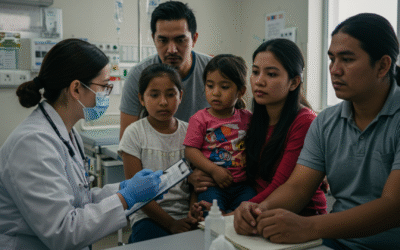In the healthcare sector, accuracy in translation is essential not only to ensure understanding but also to comply with strict international regulations. With increasing globalization and the constant evolution of standards, it is crucial to follow best practices to ensure that medical documents are clear and effective. Here are the four most relevant ones for 2025:
- Choose specialized translators
Medical terminology can be complex and specific. Having certified translators with experience in the healthcare sector is key to ensuring accuracy and avoiding misunderstandings that could have serious consequences. - Adopt AI-assisted translation technology
Translation memory tools and AI-assisted software can improve efficiency and consistency, especially in recurring documents. However, these tools should always be complemented by professional review to meet regulatory and linguistic standards. - Implement quality control processes
Establishing rigorous review protocols is essential. This includes evaluations by medical and linguistic experts to ensure that each term is accurate and that cultural and legal nuances of the target region are respected. - Stay updated on local and international regulations
Healthcare regulations vary by country and are constantly updated. It is crucial to stay informed about the specific requirements of each region, such as FDA guidelines in the United States or EMA standards in Europe.
Strategic partners for safe medical translations aligned with international regulations
To further strengthen compliance with international regulations, partnering with a translation provider that understands the nuances of healthcare standards can make all the difference. Working with experts who monitor trends and legal changes allows for proactive solutions to challenges and the prevention of costly errors.
Additionally, fostering a culture of continuous learning among translators ensures they stay updated with the latest medical terminology and current regulations. This approach not only elevates the quality of translations but also reinforces trust and credibility in all communications.
At SumaLatam, we combine human expertise with advanced technology to provide precise translations aligned with current regulations. We work to ensure your global communication is smooth and reliable, regardless of language or destination.
Following these best practices not only guarantees quality, but also trust and safety in such a delicate field as healthcare.





